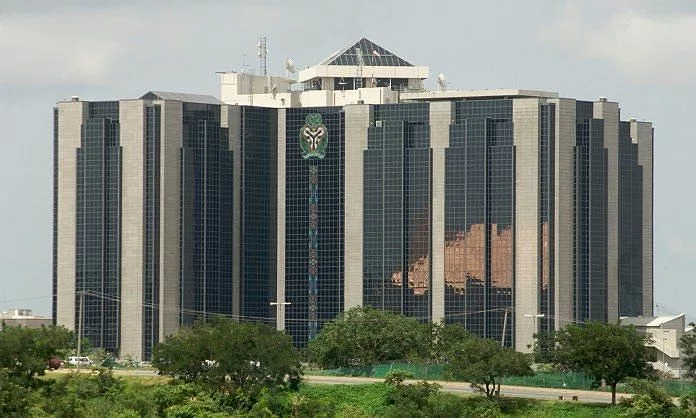With the latest inflation figure showing a further increase in the rate at which prices of goods and services rise in the country, there are indications that Nigerians will continue to face unrelenting price increases as inflationary pressures show no signs of abating.
The latest figures from the National Bureau of Statistics (NBS) show that inflation climbed to 33.88 per cent in October, up from 32.7 per cent in September. This four-month high reflects a perfect storm of rising food prices, surging energy costs, agricultural disruptions, and ongoing foreign exchange volatility, creating a challenging economic landscape for households and businesses.
Despite efforts by the Central Bank of Nigeria (CBN) to curb inflation through aggressive monetary tightening, price levels have remained elevated. In its most recent Monetary Policy Committee (MPC) meeting, the CBN increased the Monetary Policy Rate (MPR) by 50 basis points to 27.25 per cent, marking a cumulative 8.5 per cent increase since the leadership of Governor Olayemi Cardoso began.
The CBN also raised the Cash Reserve Ratio (CRR) for deposit money banks to 50 per cent, up from 45 per cent, and for merchant banks to 16 per cent, an increase from 14 per cent. These moves aim to restrict liquidity in the financial system and dampen inflationary pressures.
However, these measures have yet to translate into lower prices. The October harvest season, typically a period of relief for food prices, failed to ease food inflation, which rose to 39.16 per cent year-on-year, up from 37.77 per cent in September. Month-on-month, food inflation climbed by 30 basis points to 2.94 per cent, reflecting continued structural challenges in the agricultural sector.
Key challenges in Nigeria’s agricultural sector continue to exacerbate food inflation. Analysts at Cordros Research highlighted several factors. One of such is widespread flooding has disrupted farming activities and reduced harvest yields as well as ongoing violence in Northern Nigeria has constrained agricultural operations. There is also the higher prices for inputs, such as seeds and fertilizers, have further limited productivity.
Persistent currency depreciation has also driven up the cost of imported food, while higher transportation expenses—fueled by elevated Premium Motor Spirit (PMS) prices—have inflated retail food prices across the board.
The NBS noted that October’s month-on-month food inflation significantly exceeded the five-year average of 1.47 per cent, underscoring the severity of the current crisis.
With the main harvest period spanning September to December, food prices are expected to remain under pressure due to suboptimal yields. Additionally, festive season demand is likely to exacerbate inflation. According to the Farming Early Warning System Network (FEWSNET), food security is expected to deteriorate further from November 2024 through May 2025, primarily due to insufficient harvests.
Cordros Research predicts food inflation will rise to 3.04 per cent month-on-month in November, pushing the year-on-year figure to 40.83 per cent. Meanwhile, core inflation, which excludes volatile items like food and energy, is projected to increase by 2.16 per cent month-on-month, reaching 28.17 per cent year-on-year.
The inflation crisis is prompting calls for more than just monetary solutions. Analysts at Cowry Assets Management Limited argue that resolving Nigeria’s inflation woes requires significant structural reforms, including:
Infrastructure Development: Improving transport and storage facilities to reduce costs. Boosting Agricultural Productivity: Addressing challenges in the sector to enhance food supply. Currency Stabilization: Reducing volatility to manage imported inflation.
“Inflation is not just a monetary issue; it’s deeply rooted in structural inefficiencies,” analysts at Cowry noted. They project inflation to rise to 34.45 per cent in November, fueled by seasonal pressures and rising energy costs.
The looming festive season is expected to amplify price pressures. Analysts at Afrinvest West Africa anticipate inflation will rise to 2.7 per cent month-on-month and 34.7 per cent year-on-year in November. They cite factors such as festive-driven demand, subdued harvests, and an increase in PMS prices, which surged to N1,060 per litre in late October.
“Food inflation will likely reach 39.5 per cent year-on-year, while non-food prices are projected to increase by 28.7 per cent year-on-year,” Afrinvest stated. They expect the CBN to respond with another 25 to 50 basis points hike in the MPR during its final MPC meeting in November.
Despite the CBN’s tightening measures, Nigeria’s inflation trajectory aligns with surveys indicating that households and businesses expect rising prices to persist over the next six months. The failure of monetary policy alone to rein in inflation highlights the need for a more coordinated approach that combines fiscal discipline, structural reforms, and targeted interventions.





